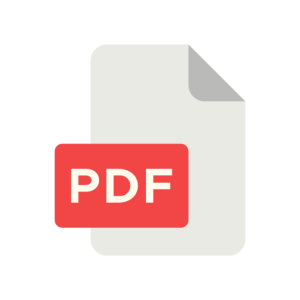Research article
Authors
Ahmed Hasan R. Al Zurfi, Ali Baay 1
Copyright © 2023 Al Zurfi. This is article distributed under the terms of the Creative Commons Attribution License http://creativecommons.org/licenses/by/4.0), which permits unrestricted use, distribution, and reproduction in any medium, provided the original work is properly cited
Abstract
This study evaluate possibility of thyroid dysfunction in patients present with fatigue after fully recovery from COVID-19 infection. 51 patients were involved in this study that was performed within eleven months from August 2022 to July 2023. First group 25 patients with history of post COVID-19 admission to Margan hospital (Babylon governorate, Iraq) at least 3 days with at least 1 month with full recovery of active disease ( no fever no sweating ) presented with fatigue & weakness with no other explanation as DM , pulmonary fibrosis , myopathy ( steroid), and second group include 26 patients with no history of admission or home treatment for COVID-19 with fatigue & weakness with same medical exclusion. TSH & fT4 were done by the Cobas e 411 analyzer which is a fully automated analyzer from Roche company. 51 patients with history of fatigue after full recovery of active COVID-19 infection, 22 (about 43%) were male and 29(about 57 %) were female. 1st group 25 patients with history of admission to hospital with age range between 45 and 79 years old and 2nd group 26 patients with no such history with age range between 45 and 81 years old. Thyroid stimulating hormone (TSH) is significantly elevated (more than 5 uIU/mL) in five patients, three of first group and in two patients of second group. So thyroid dysfunction affect patient with hospital admission more. Subclinical hypothyroidism detected in four patients and one patient with low fT4 and elevated TSH (hypothyroidism). So, the abnormal thyroid function test was found in 5 patients (9.8%). In this study we detect the following conclusions: Minority of patients present with fatigue after fully recovery from COVID-19 infection, have thyroid dysfunction (statistically not significant). According to this study the fatigue after full recovery of active COVID-19 infection, affect middle and old but not young age group. The fatigue after full recovery of active COVID-19 infection, affect female more than male. Abnormal Thyroid function tests (elevated TSH) affect patients with hospital admission more than patients with no history of admission or home treatment for COVID-19 infection. Most likely thyroid dysfunction in patients present with fatigue after fully recovery from COVID-19 infection is elevated TSH level which mostly due to sub clinical hypothyroidism.
Keywords: COVID-19, Fatigue, Thyroid
- World Health Organization. Listings of WHO’s response to COVID-19. Available at: who.int/news/item/29-06-2020-covidtimeline(accessed 22 September 2021).
- Li C, He Q, Qian H, Liu J. Overview of the pathogenesis of COVID-19 (Review). Exp Ther Med. 2021;22:1011.
- Beyerstedt S, Casaro EB, Rangel ÉB. COVID-19: Angiotensinconverting enzyme 2 (ACE2) expression and tissue susceptibility to SARS-CoV-2 infection. Eur J Clin Microbiol Infect Dis. 2021;40:905–19.
- Li W, Moore MJ, Vasilieva N, et al. Angiotensin-converting enzyme 2 is a functional receptor for the SARS coronavirus. Nature. 2003;426:450–4.
- Lazartigues E, Qadir MMF, Mauvais-Jarvis F. Endocrine significance of SARS-CoV-2’s reliance on ACE2. Endocrinology. 2020;161:bqaa108.
- Li MY, Li L, Zhang Y, Wang XS. Expression of the SARS-CoV-2 cell receptor gene ACE2 in a wide variety of human tissues. Infect Dis Poverty. 2020;9:45.
- Scappaticcio L, Pitoia F, Esposito K, et al. Impact of COVID-19 on the thyroid gland: An update. Rev Endocr Metab Disord. 2020;25:1–13.
- Rotondi M, Coperchini F, Ricci G, et al. Detection of SARS-COV-2 receptor ACE-2 mRNA in thyroid cells: A clue for COVID-19-related subacute thyroiditis. J Endocrinol Invest. 2021;44:1085–90.
- Franceschi C, Ostan R, Mariotti S, Monti D, Vitale G. The Aging Thyroid: A Reappraisal Within the Geroscience Integrated Perspective. Endocr Rev. 2019;40:1250–70.
- Chen Y, Li X, Dai Y, Zhang J. The Association Between COVID-19 and Thyroxine Levels: A Meta-Analysis. Front Endocrinol. 2021;12.
- De Vito P, Incerpi S, Pedersen JZ, et al. Thyroid hormones as modulators of immune activities at the cellular level. Thyroid. 2011;21:879–90.
- Shih CH, Chen SL, Yen CC, et al. Thyroid hormone receptor-dependent transcriptional regulation of fibrinogen and coagulation proteins. Endocrinology. 2004;145:2804–14.
- Davis PJ, Glinsky GV, Lin HY, Mousa SA. Actions of thyroid hormone analogues on chemokines. J Immunol Res. 2016;2016:3147671.
- Chen M, Zhou W, Xu W. Thyroid function analysis in 50 patients with COVID-19: a retrospective study. Thyroid. 2021;31(1):8–11. https://doi.org/10.1089/thy.2020.0363.

